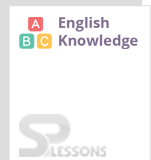 Introduction
Introduction
English Knowledge is an important section in the employment-related competitive exams in India. In particular, exams like SSC, SBI, IBPS and other bank-related employment exams have English Language questions along with Reasoning and Quantitative Aptitude. The English Language section primarily has questions related to Reading Comprehension, Cloze Test, Fill in the Blanks, Error Spotting, Grammar, Sentence Improvement, etc. This article SSC Selection Post Phase-VII English Language Quiz 3 presents the sample questions and answers related to English Language
 Quiz
Quiz
Directions (1-3): Given below the sentences each of which has been divided into four parts Each of the questions is then followed by the four options which give the sequence of the rearranged parts. You must choose the option which gives the correct sequence of the parts.
Q1. a diverse student body(A)/ among many, mainly to ensure (B)/ did, indeed, use race as one factor (C)/ Harvard acknowledged that they (D)
-
A. DCBA
B. DABC
C. DBAC
D. BACD
-
A. DCBA
B. DABC
C. DBAC
D. BACD
-
A. DCBA
B. DABC
C. DBAC
D. BACD
-
A. Come up
B. Fall down
C. Drop by
D. call off
-
A. blow out
B. account for
C. dispose off
D. cheer on
Direction (1-3): In these questions some of the sentences have errors and some have none. Find out which part of a sentence has an error and indicate it corresponding to the appropriate letters. If there is no error, indicate corresponding to the last option.
Q1. After we were driving for miles (A) / on the winding road (B) / I was suddenly sick. (C) / No error (D)
-
A. A
B. B
C. C
D. D
-
A. A
B. B
C. C
D. D
-
A. A
B. B
C. C
D. D
-
A. Glowing object
B. Far from reality
C. Celestial
D. Prosperous life
-
A. To live in pleasure
B. In a particular surrounding
C. To be prepared to answer all the questions
D. In total chaos
Direction (1-5): A passage is given with 5 questions following it. Read the passage carefully and choose the best answer to each question out of the four alternatives.
A classless society, however, does not mean a society without leaders. It means rather one in which every citizen becomes for the first time eligible for leadership if he has the power to lead. It means a society in which everyone is given, as far as possible, the chance to develop this power by the widest diffusion of educational opportunities in the broadest sense, and by keeping the career wide open to talents of every useful kind. It is often said that a community of equals will not allow itself to be led. But in fact, most men are, in most things, very willing to be led, and more in danger of giving their leaders too much than too little authority, especially if they are free to choose them, and assured that the leaders cannot exploit them for personal economic advantage; leadership, so far from disappearing, will come intuits own in a truly democratic society. But it is likely to be a more diffused leadership than we are used to; for a better-nurtured people will have more citizens with strong wills and minds of their own, wishful to lead; some in politics, some in industry, and some in professions and arts of life.
This is the idea of a classless society. Some will reject it as contrary to their interest, some as utopian and against ‘Human nature,’ for there are some who deny, indeed if not in word, that the aim of society should be to promote the greatest happiness and welfare of the greatest number and others who hold, with pessimistic honesty, that most men must be driven and not led.
Q1. According to the passage, a classless society is _____
-
A. A society in which there are no leaders
B. A society where no one is willing to be led.
C. A society where everyone would not give authority to their leaders
D. A society where everyone can become a leader.
-
A. Leaders would not exploit others for their personal advantage.
B. Leaders would not have too much authority over people.
C. Many would develop leadership in the field of their interest.
D. Every person would have a reason to lead.
-
A. People who are assertive enough to lead.
B. People who book no opposition.
C. People with conviction in their ideas.
D. People willing to innovate.
-
A. Utopian
B. Cynical
C. Idealists
D. Dictatorial
-
A. Expository
B. Factual
C. Critical
D. Satirical





